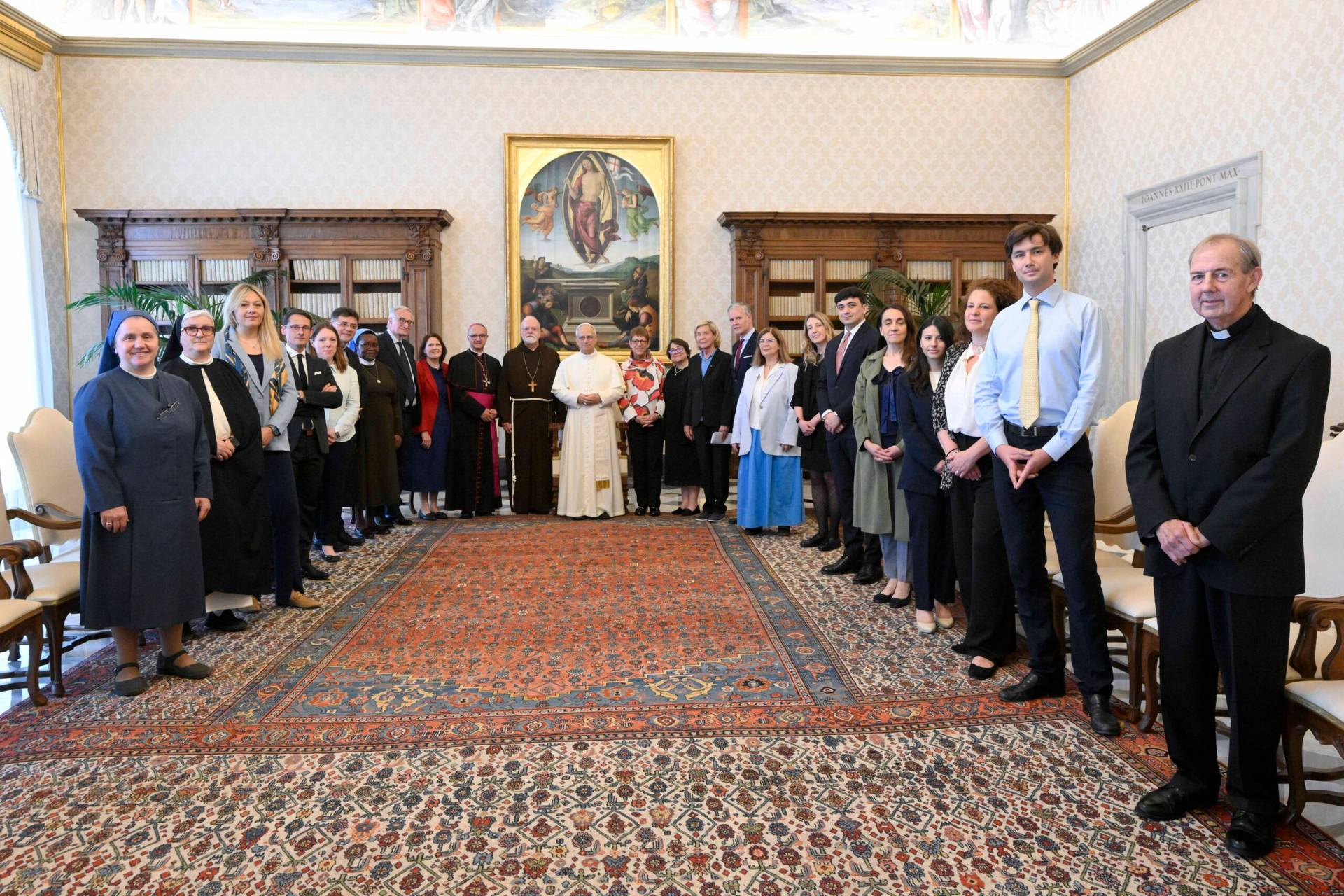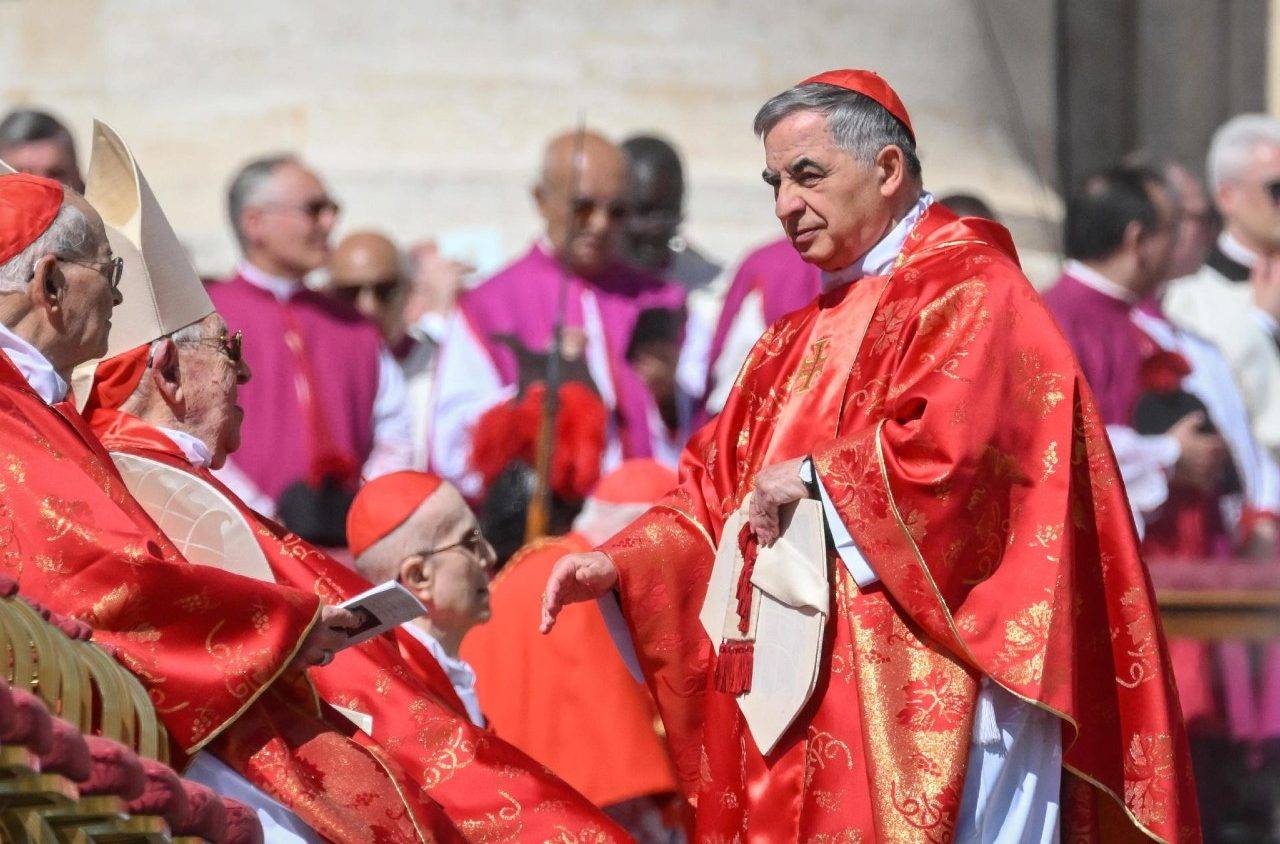ROME – Today Pope Francis is in Macedonia (technically “The Republic of North Macedonia,” since many Greeks don’t believe the former Yugoslav territory is the “real” Macedonia), after he spent Sunday and Monday in the small southeastern European country of Bulgaria.
Here’s a dirty little trade secret: Many reporters who cover the Vatican didn’t really want to make this trip, since its destinations weren’t considered “sexy” and its themes – including ecumenism, a minority Catholic community, migration and the poor – were seen as either boring or overly familiar, or both.
Yet it’s important to remember that reporters and popes see things differently much of the time, and as far as Francis is concerned, it’s entirely possible that his two-day swing in Bulgaria may have loomed as one of his most important outings of 2019. Moreover, it’s not at all difficult to explain why.
One can sum it up, actually, in two words: John XXIII.
From the very beginning, Francis has seen his pontificate as a revival and concrete application of the Second Vatican Council (1962-65), the ecumenical council summoned by “Good Pope John.” Two years ago, speaking to a group of Italian theologians about Vatican II, Francis said “the Church must always refer itself to that event,” and it’s clear he means it in terms of the policies of his papacy.
From returning control over liturgical translation to local bishops’ conferences to reviving the role of the Synod of Bishops, from his advocacy of a “healthy decentralization” to his constant criticism of clericalism and support for the lay role, Francis is very much a man of Vatican II, seeing himself as indebted and inspired by the pope who called the council and whose vision it reflected.
When Francis canonized John XXIII in 2014 along with John Paul II, it’s important to recall that while John Paul’s sainthood was based on a second miracle recognized by the Vatican, in John XXIII’s case Francis set aside the traditional miracle requirement and instead approved his halo on the basis of the merits of the Second Vatican Council.
Francis from the beginning has seen himself journeying in the footsteps of John XXIII, which explains why, sooner or later, he had to come to Bulgaria.
In February 1925, then-Father Angelo Roncalli was happily serving in Rome as head of the Society for the Propagation of the Faith, a role to which he’d been appointed by Pope Benedict XV. Cardinal Pietro Gasparri, the Vatican’s powerful Secretary of State, informed Roncalli that the new pope, Pius XI, was sending him to Bulgaria as his envoy.
Roncalli initially was reluctant, but he eventually fell in love with the country and its people, serving there for a decade from 1925 to 1935.
He threw himself into the assignment. In 1926, Roncalli made a donation to feed the children of refugees from Eastern Thrace and Aegean Macedonia, many of whom were Orthodox Christians and ethnic Bulgars fleeing massacres in the former Ottoman Empire.
Roncalli also helped with relief funding for victims of a serious 1928 earthquake in Bulgaria, after initially living with people in tents at the disaster site to lend a hand. He knocked on doors in the Vatican until Rome sent funds to open what eventually became known as the “Pope’s soup kitchen.”
Roncalli also facilitated a marriage agreement between king Boris III and princess Giovanna, a Roman Catholic. He spent most of World War II at the papal representative to Turkey and Greece, but still used his influence to save Bulgarian Jews from the Holocaust.”
More than his specific contributions, Roncalli was fascinated by the cultural milieu in Bulgaria, including its strong Orthodox Christian identity. He befriended many Orthodox, and it was this experience that led him as pope to become a strong advocate of the push for Christian unity expressed in Vatican II’s document Unitatis redintegratio.
Roncalli also took his pastoral role seriously, often traveling for long hours by train or on horseback to be with Bulgaria’s tiny Catholic flock who were living in poverty and on society’s margins.
When he finally left Bulgaria to head to his next assignment as a papal envoy in Turkey, Roncalli delivered what amounted to a love letter in his farewell homily.
“Wherever I may go, if a Bulgarian pass by my door, whether it’s night-time or whether he’s poor, he will find the candle lighted at my window. Knock, knock. You won’t be asked if you’re a Catholic or not; the title of Bulgarian brother is enough. Come in. Two fraternal arms will welcome you, and the warm heart of a friend will make it a feast-day. Such is the charity of the Lord whose graces have made life sweet during my ten years stay in Bulgaria.”
Francis mentioned his predecessor at virtually every opportunity in Bulgaria, including a visit with the local Catholic community on Tuesday. The future pope’s experience of building friendships with the Orthodox, Francis said, set him “on a path that would help foster the longed-for, yet ever fragile sense of fraternity between individuals and communities.”
When he’s elected, every pope has to confront the obvious existential question of, “Why me?” Each man will answer that differently, but in Francis’s case, it seems reasonably clear that part of his answer to that question lies in Vatican II – what he saw as its unrealized promise and unfinished business.
For that reason, one could say that John XXIII is the patron saint of this papacy. Therefore, while the last two days in Bulgaria may have seemed a bit sleepy from a media point of view, they undoubtedly meant the world to the man at the center of it all.
















